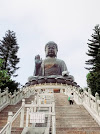Hong Kong hotels these days are feeling forsaken not just by guests but government, which excluded them from a $4 billion (HK$30 billion) coronavirus relief package announced last week. Comparisons with Singapore add salt to the wound, with the Lion City seen as more empathetic towards hotels’ plight and more forward thinking.
The Federation of Hong Kong Hotel Owners, the Hong Kong Hotels Association, and independent hotel companies such as Ovolo Group have all lobbied for meaningful government aid that would help them survive and are waiting with bated breath if this will be forthcoming in Hong Kong’s annual budget scheduled this week.
Hong Kong hotels last week were dismayed at being excluded from the $4 billion relief funding, about half of which would go to one-off cash injections to retailers, food and beverage providers, transport firms, students, the arts and culture sector, guesthouses and travel agents
Nederst på formularen
In contrast, Singapore unleashed a relief funding of $3 billion (S$4 billion) to support businesses and jobs, plus additional measures including a property tax rebate of up to 30 percent, corporate income tax rebates, and an 8 percent offset of wages for every local employed for three months from August 1. For a labor intensive and high operating cost industry, those are meaningful initiatives that Hong Kong hotels also want.
“We’re not necessarily looking for [cash] handouts. Can we look at waivers of rates and rents for a year? Income tax holidays?,” Tim Alpe, chief operating officer of Ovolo Group, told Skift.
“Can we subsidize energy and other costs that are regulated by government? These are all significant operating expenses for us.”
In his open letter to the government last week, Alpe asked, “Why have the city’s hotels been forsaken in the recent relief measures?” The industry is at the heart of Hong Kong tourism, which contributes to more than 4 percent to gross domestic product. Hotels’ biggest contribution is jobs, aside from huge revenues to government coffers from taxes and such, he told Skift.
Yet “we have been left to fend for ourselves,” when “the situation is beyond fight for market share, it’s now about survival.”
Hong Kong is now getting 3,000 visitors a day, from 90,000 overnight visitors daily in February last year, he said. “We are seeing hotels reducing operations and even closing their doors, restaurants failing, redundancies across the board and unpaid leave for employees.”
Hong Kong Hotels Association was also “disappointed upon realizing that the hotel sector had been left out in the cold,” said its executive director Patrick Kwok.
“We have written to the government since last year when the social unrest saw 60 countries issuing travel advisories against Hong Kong,” said Kwok. “We hope there’s a phase two in relief measures. We understand the government needs some time to come up with measures that focus on different industries. We hope we are on the list.”
In January occupancy was around 30 percent, Kwok said. “Now, we hear that occupancy is closed to a single digit. Average room rate is down by 40 to 50 percent. It depends on the category of hotels and the location. For example, airport hotels are doing a little bit better.”
Kwok however said only a small number of individual hotels that’s part of the association has closed. The association has 140 members comprising 58,000 rooms. Hong Kong has 300 hotels with 83,000 rooms.
“They [members] are reducing the scale of operations with measures such as closing a couple of floors due to the slowdown in business. But basically all are operating right now,” said Kwok.
MANAGING CRISIS
Hotel companies with strong backing are in a better position to weather the crisis than small ones. Wharf Hotels, for instance, backed by legacy Wharf Holdings, decided to close its 394-room Prince Hotel on Monday for a 15-month renovation, dumping the original plan to keep the hotel open and renovate the property in phases from this month which, under current conditions, could result in major staff reductions. Instead, staff of the hotel have been redeployed to its two other sisters in the same cluster, Gateway Hotel and Marco Polo Hongkong Hotel. The three hotels have a total of 1,500 rooms.
The well-located Prince Hotel on Canton Road has been a favorite of global business and leisure travelers since 1984 and will reopen in third-quarter 2021 as Marco Polo Prince Hotel.
Wharf Hotels president, Jennifer Cronin, who has a PhD in crisis management, is using the downturn “to find new ways of doing things and getting the troops together, so that we will come out at the other end of this a much stronger and more efficient team,” she said.
The chain has been able to keep staff by terminating outsourced contracts where possible and getting these work done by its own staff instead. As well, associates are now on various up-skilling and training programs. Corporate Social Responsibility is also key, with staff involved in projects such as cleaning up Hong Kong’s hiking trails and producing coloring books that are sent to the Children’s Cancer Foundation.
Langham Hospitality Group, backed by another legacy, Great Eagle Holdings, also puts its heart on taking care of staff.
“Our properties are pretty much empty shells without our colleagues,” said CEO, Stefan Leser. “We have to strengthen their morale, especially those in Hong Kong and China, and there is a deep sense of responsibility about this from our hotels to the corporate office.”
For a chain whose positioning is encouraging guests to “Celebrate the Everyday” at its hotels, be it an anniversary occasion or a special event created by its properties, Leser admits that times have gotten tougher.
“During the [pro-democracy] protests, there was still F&B. Occupancies were still around 50-60 percent. Now it’s all significantly down. We have to accept the new normal brought upon us by events of the past eight months. That said I am confident Hong Kong will regain its position. Its fundamentals as a global financial center and an exciting world city are still there. So it’s prudent to prepare now and make sure we are in the best shape when the business is back,” he said.
Despite everything, confidence hasn’t forsaken Hong Kong. Robert Williams, head of hotels and hospitality Asia-Pacific, Withers Worldwide, said the company is involved in some operator selections in Hong Kong and “we’re not seeing these [negotiations] being impacted by the short-term issues Hong Kong is facing.”
The only thing that may happen is an extension of construction timelines on new-builds, since the supply chain is now interrupted by delays in mainland China, he said.
Hong Kong Hotels Association’s Kwok added that hotels that pipeline hotels are continuing to open as scheduled this year, for example, the 840-room Hotel Alexandra, part of Harbour Plaza Hotels & Resorts























